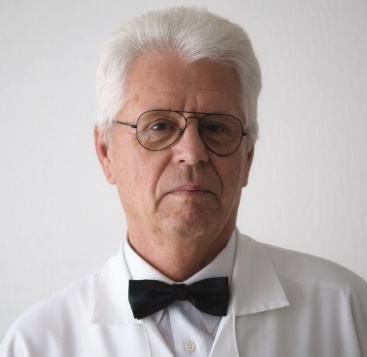Scientific Program

Voinov V.A., Voinova Ya.V
Saint Petersburg State Medical University, Russia
Biography:
Valerii A. Voinov – MD, Ph.D., professor, head of Therapeutic apheresis department, of I.P. Pavlov’s St. Petersburg State Medical University. He is the author of more than 470 scientific papers, including 12 monographs, 25 inventions, and patents on the problems of therapeutic apheresis in various fields of medicine. Valerii A. Voinov participated in creating the first domestic plasma filters PFM-800 as well as PFM-TT “ROSA” and development of devices and methods of membrane plasmapheresis and their deployment in medical institutions of Russia and abroad in many countries of Europe, Asia, Africa, and Latin America. His main book, “Therapeutic Apheresis”, has been translated into Bulgarian, Romanian, English, and Spanish. Valerii A. Voinov – MD, Ph.D., professor, head of Therapeutic apheresis department, of I.P. Pavlov’s St. Petersburg State Medical University. He is the author of more than 470 scientific papers, including 12 monographs, 25 inventions and patents on the problems of therapeutic apheresis in various fields of medicine. Valerii A. Voinov participated in creating the first domestic plasma filters PFM-800 as well as PFM-TT “ROSA” and development of devices and methods of membrane plasmapheresis and their deployment in medical institutions of Russia and abroad in many countries of Europe, Asia, Africa, and Latin America. His main book, “Therapeutic Apheresis”, has been translated into Bulgarian, Romanian, English, and Spanish.
Abstract
The COVID-19 pandemic affected more than 40 million people on Earth, of which more than 1 million died. However, even among the survivors, many have long-term consequences, fraught with serious health disorders.
The kidneys are one of the target organs for COVID-19 infection. Signs of proteinuria and hematuria can be found in 75% of patients. Moreover, 52% of patients requiring artificial ventilation of the lungs develop acute kidney damage within 24 hours after intubation. The mortality rate in this case reaches 30-70%, despite the conduct of renal replacement therapy. The predisposing factors are diabetes and arterial hypertension, as well as previous chronic liver and kidney disease, which is accompanied by a higher mortality rate - up to 53%. The main pathogenetic factor in this case is endotoxemia with an increase in the levels of C-reactive protein, interleukin-6, impaired T- and B-cell immunity. Both the glomerular apparatus and the tubular epithelium with significant disorders of their functions, requiring renal replacement therapy, are subject to toxic damage. These disorders are associated not so much with their direct viral damage, but with the body's inflammatory immune response with the release of a number of cytokines and complement, which contributes to the development of vasculitis, like those that cause kidney diseases such as ANCA vasculitis (microscopic polyangiitis, granulomatous vasculitis - diseases of Wegener and Goodpasture). A kidney biopsy is sometimes the first time a true crescentic proliferative glomerulonephritis is diagnosed.
It should be considered that changes in the renal parenchyma remain for a long time after formal recovery and often turn into a chronic form and even to the so-called delayed mortality. There is a lot of evidence to support the autoimmune nature of such long-term complications after COVID-19 infection. One of the factors contributing to them is the proximity of the antigenic structure of the proteins of the virus and humans. The severity of the complications caused makes it necessary to carry out serious measures for the rehabilitation of such patients after their recovery. Given the autoimmune nature of these complications, it is most advisable to use plasmapheresis for this, with the help of which it is possible to remove not only autoantibodies and cytokines but also many other toxic substances accumulated during the course of the illness, including hepato- and nephrotoxic drugs. And if you use these methods of extracorporeal detoxification during illness, you can prevent critical conditions and all long-term complications.
- Kidney-Related Metabolic Disorders
- Cardiovascular Impacts of Kidney Diseases
- Mineral & Bone Disorder in CKD
- Peritoneal Dialysis
- Anti-GBM (Goodpasture's) Disease
- Nephrotic Syndrome in Adults
- Renal Artery Stenosis
- Amyloidosis & Kidney Disease
- Kidney Dysplasia
- Eating & Nutrition For Haemodialysis

